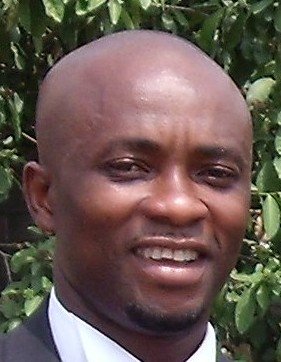“The mind is like palm oil, when it lies still we heat it up.” – Akan proverb
There are things we know of which demand action and yet we do nothing about them. Two of them we know we have to change, and we know we have to adopt new attitudes in order to initiate the change that we need. This responsibility is so fundamental it haunts us. We know we have to change before change changes us. Yet quite a number of us desire to continue living as we live now, believing that tomorrow will be the same as today. It’s like wanting to believe one thing, but then knowing another and clinging to that. This is living in denial and wanting to know the truth. Suffice to say, this sort of attitude is not one that befits an educated mind.
Some of us, and we are probably in the majority, can relate to being in a particular situation and succumbing to something we suspect to be a lie. It usual starts with a shrug, ‘I will let it pass this time’. The second time, you cannot say “no” because you went along with it the first time. After a while you add such false knowledge to your collection of beliefs, and you start protecting it from being diffused. In short, it becomes part of your attitude. And just as ‘confirmation bias’ defends us when we actively seek information, the ‘backfire effect’ prevents us from opening-up to new knowledge that is inconsistent with our hardened attitude.
Too often, we break out a denial attitude when we feel uncomfortable about a situation. If you ask people why they are not making sacrifices to make society better, the surprising majority readily argues that it is the leaders who have failed and they are not personally in a position to bring about change. They conveniently forget that every vice they engage in contributes to the ruin of society. This response stems more from the individual recognising that they are shirking their societal responsibility than the fact leaders are not doing enough. We can make efforts to detach ourselves from our responsibility, but we carve fictitious arguments around our neglect and project them as what should be.
The reality is that we cannot get away from ourselves by telling one story after another. It does not matter how often we shift the goal-posts; whatever state we are in is the state we are in. The downside of the running-away-from-ourselves attitude is that we prevent ourselves from initiating programmes and activities to tackle the challenges we face.
Living in denial can seem to be an escape, but in reality it is a roadblock. Usually, when it begins it can seem entertaining, even pleasant… like sipping milk and honey. But in the long run it creates doubts in our thoughts about our abilities; it saps our strength and leaves us with an emptiness that makes our attitudes poisonous.
Around us, the workload of making society safer and better is not decreasing. In fact, it is mounting. Unfortunately, what many of us are doing is lamenting about the situation instead of helping those who are making a difference. We fret, and we live this denial by criticism and apathy. Many of us have forgotten that leadership is not about the position but rather about our contributions to the thriving of our humanity. What starts as a harmless shred of “I don’t care”, over time degenerates into a trend of trusting less and less people; and in the final stage not only do we not care, but we would not even think of doing anything about making society better. This unconsciously destroys our communal relations, forcing us to retreat into a life in which we think only of our own satisfaction.
The number among us who feel we have been let down by society keeps increasing. But how many of think about it the other way round – as in we are letting society down? We are reluctant to put our hopes on anything outside ourselves, yet we want the world to put their hopes in us. The question, perhaps, is how long are we to live our denial? In this ‘age of self-glory’ wherein we feel our opinions should be laws, it is going to be difficult but not impossible. We only need to understand that the vibrancy of life is a trust in life itself. It is not about us and our realities. It is about life and what we can do to make life meaningful.
Too often, we are trapped into living in denial because we are afraid to confront our weaknesses and failures. It is time to view them in a more positive manner. They are not meant to overwhelm or humiliate us. They are intended to make us appreciate the difficulties embedded in any task, and awaken our respect for those who in any way tackle them – even if their achievement is partial. The time has come for us to let go of the fears of our individualism and re-establish the courage of the whole to do what is right when it is right, using the right processes and right people. Once our fears are defeated, we need not deny our weaknesses in order to appear strong.
Kodwo Brumpon is a partner at Brumpon & Kobla Ltd., a forward-thinking Pan African management consultancy and social impact firm driven by data analytics, with a focus on understanding the extraordinary potential and needs of organisations and businesses to help them cultivate synergies which catapult them into their strategic growth and certifies their sustainability.
Comments, suggestions and requests should be sent to him at kodwo@brumponand kobla.com










